第51章
At best the year was the least happy she had ever spent. She repeatedly alarmed her mother by broaching projects of becoming a hospital nurse, a public singer, or an actress. These projects led to some desultory studies. In order to qualify herself as a nurse she read a handbook of physiology, which Mrs. Wylie thought so improper a subject for a young lady that she went in tears to beg Mrs. Jansenius to remonstrate with her unruly girl. Mrs.
Jansenius, better advised, was of opinion that the more a woman knew the more wisely she was likely to act, and that Agatha would soon drop the physiology of her own accord. This proved true.
Agatha, having finished her book by dint of extensive skipping, proceeded to study pathology from a volume of clinical lectures.
Finding her own sensations exactly like those described in the book as symptoms of the direst diseases, she put it by in alarm, and took up a novel, which was free from the fault she had found in the lectures, inasmuch as none of the emotions it described in the least resembled any she had ever experienced.
After a brief interval, she consulted a fashionable teacher of singing as to whether her voice was strong enough for the operatic stage. He recommended her to study with him for six years, assuring her that at the end of that period--if she followed his directions--she should be the greatest singer in the world. To this there was, in her mind, the conclusive objection that in six years she should be an old woman. So she resolved to try privately whether she could not get on more quickly by herself. Meanwhile, with a view to the drama in case her operatic scheme should fail, she took lessons in elocution and gymnastics.
Practice in these improved her health and spirits so much that her previous aspirations seemed too limited. She tried her hand at all the arts in succession, but was too discouraged by the weakness of her first attempts to persevere. She knew that as a general rule there are feeble and ridiculous beginnings to all excellence, but she never applied general rules to her own case, still thinking of herself as an exception to them, just as she had done when she romanced about Smilash. The illusions of adolescence were thick upon her.
Meanwhile her progress was creating anxieties in which she had no share. Her paroxysms of exhilaration, followed by a gnawing sense of failure and uselessness, were known to her mother only as "wildness" and "low spirits," to be combated by needlework as a sedative, or beef tea as a stimulant. Mrs. Wylie had learnt by rote that the whole duty of a lady is to be graceful, charitable, helpful, modest, and disinterested whilst awaiting passively whatever lot these virtues may induce. But she had learnt by experience that a lady's business in society is to get married, and that virtues and accomplishments alike are important only as attractions to eligible bachelors. As this truth is shameful, young ladies are left for a year or two to find it out for themselves; it is seldom explicitly conveyed to them at their entry into society. Hence they often throw away capital bargains in their first season, and are compelled to offer themselves at greatly reduced prices subsequently,when their attractions begin to stale. This was the fate which Mrs. Wylie, warned by Mrs.
Jansenius, feared for Agatha, who, time after time when a callow gentleman of wealth and position was introduced to her, drove him brusquely away as soon as he ventured to hint that 200his affections were concerned in their acquaintanceship. The anxious mother had to console herself with the fact that her daughter drove away the ineligible as ruthlessly as the eligible, formed no unworldly attachments, was still very young, and would grow less coy as she advanced in years and in what Mrs. Jansenius called sense.
But as the seasons went by it remained questionable whether Agatha was the more to be congratulated on having begun life after leaving school or Henrietta on having finished it.